Many years ago — decades, in fact — in a rare moment of precocious insight, I wrote the following in my journal:
“There is nothing like the wisdom and love of friends to remind us of who we are.”
Even at the time, I understood that I had, without any intention of doing so, stumbled upon some deep wisdom of my own. Because add to “the wisdom and love of friends” the words “and family,” and you have precisely the experience I have just enjoyed.
I have recently returned from an extended journey east and north, and I am feeling stronger than I have in some time, in large part because of the friends and family I encountered along the way. The trip began with Nancy and me attending a university event in Richmond, where she was the guest of honor and featured speaker. Seeing her excel at her job, watching her move among strangers with ease and poise, listening to her deliver remarks with the aplomb of a seasoned pro, brings me such joy and makes me so proud I can hardly find words to express the emotion. And so the trip began, as do all things in my life, with her, with us.
From there, as many of you already know, I went on to the Hampton Roads Writers Conference, which was well-run and professionally fulfilling. The highlights of the weekend, though, were the two evenings I spent hanging out with Edmund Schubert and John Hartness. Both nights, we talked business, we talked craft and market, we spoke of family, of life and friendships, we just shot the shit for hours. It was amazing.
I have spent too, too long, in my own head, dealing with uncertainties, with anxieties, with fear and grief, with my own emotional health issues as well as with the challenges life throws at so many of us. It wasn’t that these evenings with my friends made me forget all that other stuff. Rather, it was that these two amazing friends and I made room in our interactions for all that each of us is going through right now. We commiserated and supported, even as we also laughed and spoke of other things.
And that was a harbinger of the entire trip.
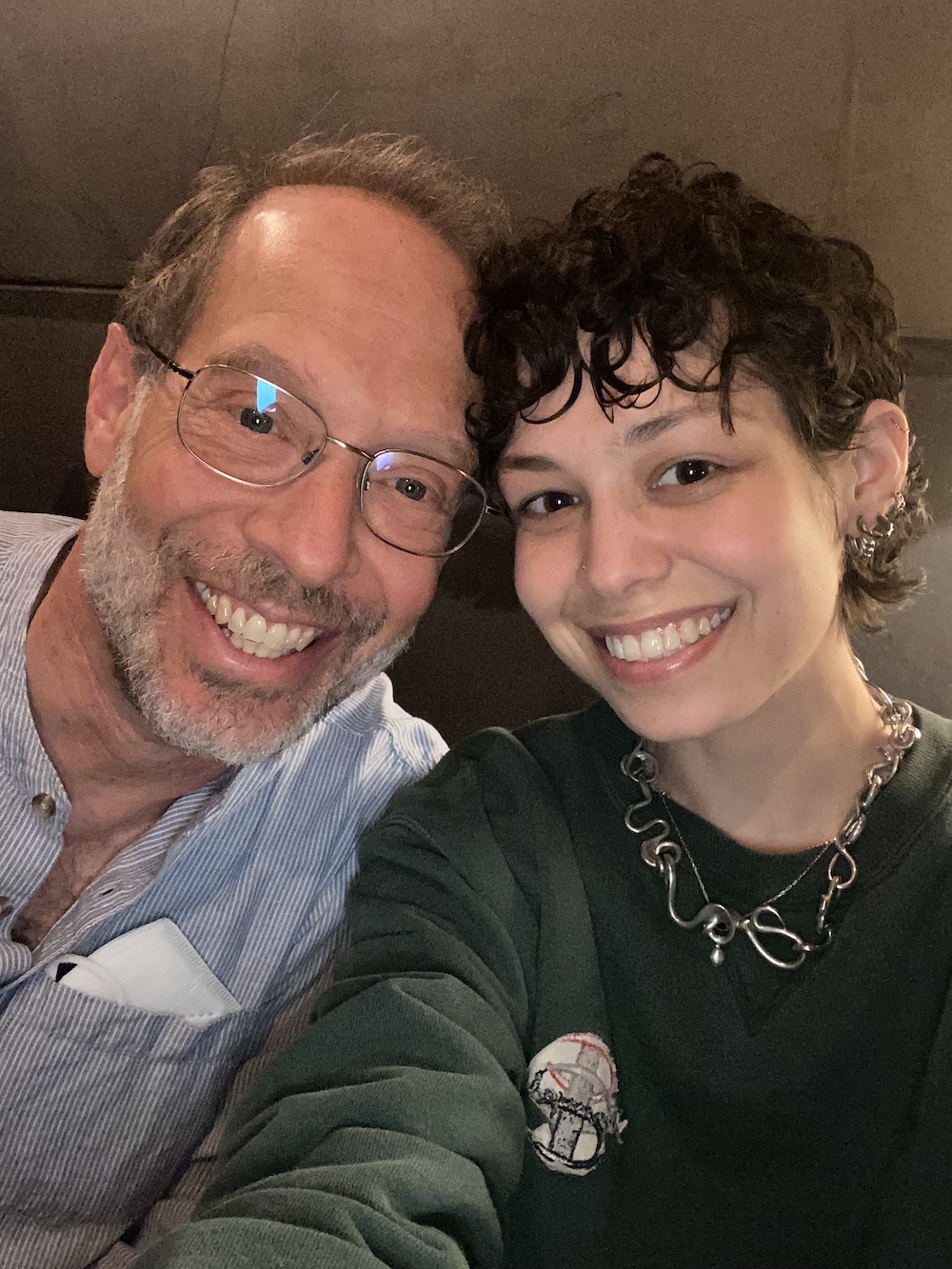 From Virginia Beach, I went to Brooklyn, where I spent two evenings with my older daughter. She looks beautiful, seems great, has a ton of energy, and was her normal, playful, thoughtful, intelligent, insightful, slightly acerbic self. Seeing her, having such amazing time with her, was reassuring to say the least.
From Virginia Beach, I went to Brooklyn, where I spent two evenings with my older daughter. She looks beautiful, seems great, has a ton of energy, and was her normal, playful, thoughtful, intelligent, insightful, slightly acerbic self. Seeing her, having such amazing time with her, was reassuring to say the least.
I also spent an afternoon with two old friends from my high school and college years. We are, all of us, changed. How could we not be? But our affection for one another remains, as does our ability to joke and laugh one minute, and then shift gears into matters weighty and significant the next. Seeing them was a rare treat, one I have missed these many years.
I drove from Brooklyn to central New York State, where I stayed with my brother Jim, and his wife, Karen. They are two of Nancy and my favorite people in the world. Jim is my birdwatching partner and guru, not to mention my oldest and dearest friend in the world outside of Nancy and my girls. Karen, his wife of 35 years, is brilliant, witty, articulate, passionate about her work, and so much fun. She and I share affinities for good Scotch and teasing Jim. While I was there, we were joined for dinner one night by Jim and Karen’s daughter, Rachel, who is as terrific as her parents.
And while in the Albany area, I also saw my wonderful friends Alan and Karen. Alan was (along with our friend, Amy — more on her in a moment) my closest friend in college, my musical partner (also along with Amy), and my housemate. In the nearly forty years since college, he (and Karen, and Amy and her husband, Paul) has remained as caring and constant a friend as anyone could want.
I started home on Friday, driving into the wind and rain of Ian, and I stayed that night in the Charlottesville area with Amy and Paul. We drank Manhattans and ate pasta, they showed me photos from their son’s recent wedding, and we talked deep into the night. Or as deep as we of advanced middle age are capable of these days. Which is to say, not really that late at all. But it was a great evening.
The next day, I arrived home.
My trip lasted twelve days, and pretty much every one of them brought me to someone I care about, someone who knows and understands me, someone whose wisdom and love made for a special day or evening.
I am back home now, and I feel restored in some way. Yes, the anxieties and difficulties persist. Life continues to throw stuff in our paths, and much of what Nancy and I have struggled with for the past year and a half will continue to challenge us for a long time to come. But I feel more connected to where I come from, to the person I have long known myself to be. I am reminded that there is more to me than fear and sadness and struggle. There is strength as well, and worth and humor and, most important, the love of people I respect and admire.
“There is nothing like the wisdom and love of friends and family to remind us of who we are.”
Yes, maybe there is something trite to the thought. But at 22, when I wrote it, it felt like a valuable insight. And three and a half decades later, it still carries the weight of truth.
Have a great week.
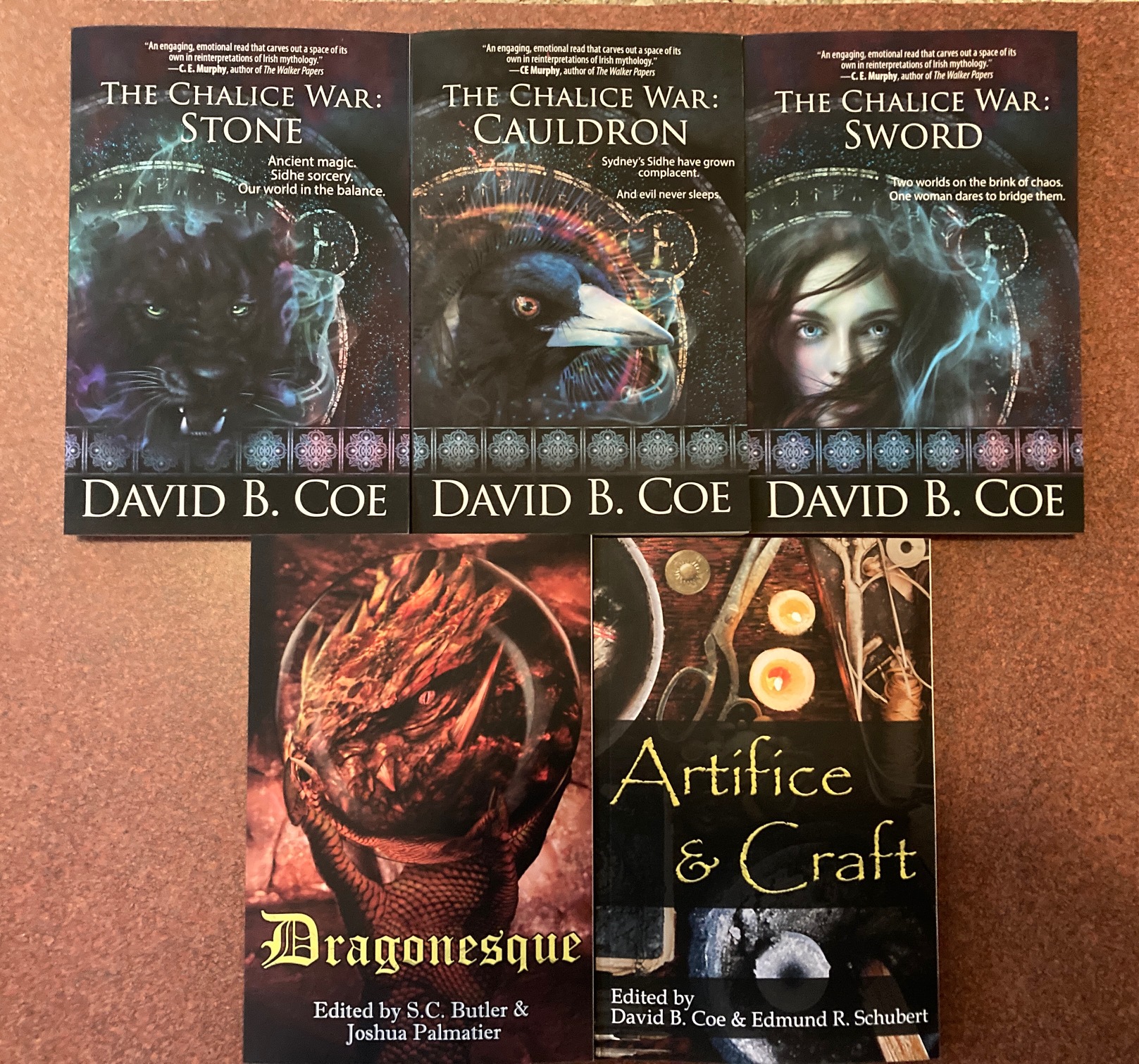









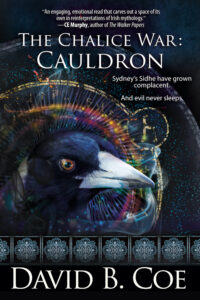 As I mentioned in a recent post, I have been doing a tremendous amount of editing and revising these past several months. Between co-editing (with
As I mentioned in a recent post, I have been doing a tremendous amount of editing and revising these past several months. Between co-editing (with 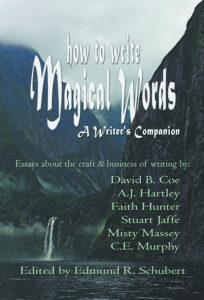 We kept the site going for nearly a decade (thanks Todd Massey), and the site still exists, for those interested in wading through the extensive archives. We also produced a writing book, which is still available.
We kept the site going for nearly a decade (thanks Todd Massey), and the site still exists, for those interested in wading through the extensive archives. We also produced a writing book, which is still available.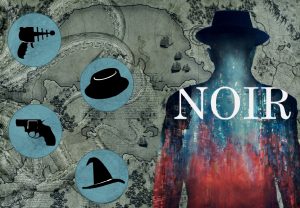 So far, we have received some very good stories. We have also received far, far more that won’t make the first cut. And so I thought I would go over again, briefly, the things that can make or break a story submission, at least for this editor.
So far, we have received some very good stories. We have also received far, far more that won’t make the first cut. And so I thought I would go over again, briefly, the things that can make or break a story submission, at least for this editor.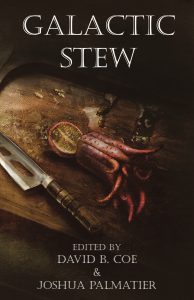 Will I reject a story simply because it is single-spaced instead of double-spaced? No, I’m not quite that mean. But when reading a story, knowing I have literally dozens more waiting in the queue, I will only tolerate so many flaws before I reject it. Remember, I have 500 stories to choose from. I can and will find what I’m looking for. No story is ever perfect, so ask yourself, do you want to expend one of your flaws on formatting? Or do you want to present your story correctly so that I can judge it on its artistic merits? The answer seems self-evident to me.
Will I reject a story simply because it is single-spaced instead of double-spaced? No, I’m not quite that mean. But when reading a story, knowing I have literally dozens more waiting in the queue, I will only tolerate so many flaws before I reject it. Remember, I have 500 stories to choose from. I can and will find what I’m looking for. No story is ever perfect, so ask yourself, do you want to expend one of your flaws on formatting? Or do you want to present your story correctly so that I can judge it on its artistic merits? The answer seems self-evident to me.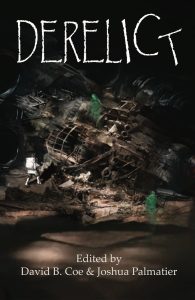 1) I abhor the cliché, but think outside the box. As
1) I abhor the cliché, but think outside the box. As  One idea is to write my next Thieftaker novel, either in the form of a trio of novellas, like I did with
One idea is to write my next Thieftaker novel, either in the form of a trio of novellas, like I did with 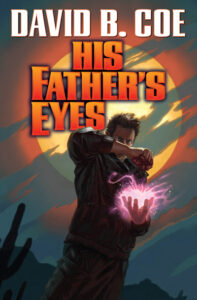
 I want to write at least one more
I want to write at least one more  From Virginia Beach, I went to Brooklyn, where I spent two evenings with my older daughter. She looks beautiful, seems great, has a ton of energy, and was her normal, playful, thoughtful, intelligent, insightful, slightly acerbic self. Seeing her, having such amazing time with her, was reassuring to say the least.
From Virginia Beach, I went to Brooklyn, where I spent two evenings with my older daughter. She looks beautiful, seems great, has a ton of energy, and was her normal, playful, thoughtful, intelligent, insightful, slightly acerbic self. Seeing her, having such amazing time with her, was reassuring to say the least.